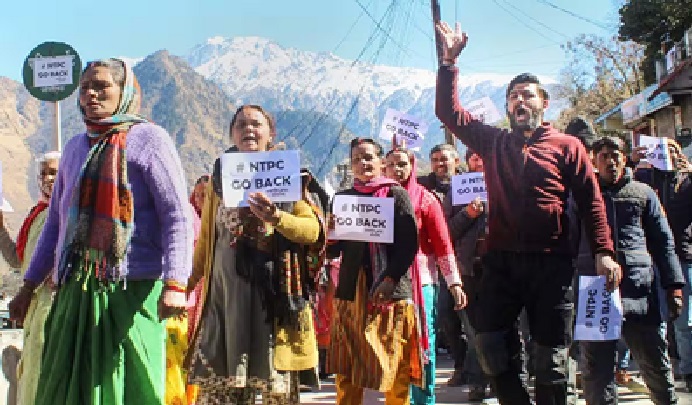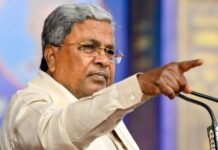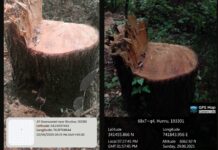Guwahati: In a rare display of solidarity, residents from both Assam-Meghalaya border areas came together to oppose an upcoming hydroelectric plant.
A public meeting was held at Ukiam near the Assam–Meghalaya border to oppose the government’s proposed 55 MW hydroelectric project over the Kulsi River. The gathering was attended by representatives from multiple indigenous student and community organisations from both Assam and Meghalaya.
“Today, we have gathered under the joint Assam-Meghalaya force, and 19 groups have come to oppose the Kulsi Dam project. As such, we held a protest rally earlier and are also writing a letter to Assam CM Himanta Biswa Sarma and Meghalaya CM Conrad Sangma. If this project is not stopped, we will face a lot of tribals, especially the tribal, and we are trying to fight this,” said Rojni Boro, a local resident of Ukiam.
The meeting, conducted at the Ukiam public auditorium, was jointly led by Grensish Sohshang, President of the Kherseh Area Khasi Students’ Union; Elbert Nonglang, President of the Assam–Meghalaya Joint Resistance Committee; and Laskar Rabha, President of the Chhaygaon Regional Rabha Students’ Union.
Key speakers at the event included Ananda Rabha, President of Kamrup District Rabha Students’ Union; H.S. Nonglam, Minister representing the traditional chief (Syiem) of Rambrai Dorbar Himah, West Khasi Hills; advocate Jayanta Kumar Rabha from the Gauhati High Court; Pradip Rabha, Vice-President of the All Rabha Students’ Union; Robin Boro, Advisor to the Assam–Meghalaya Joint Resistance Committee; and Standard Changmai, President of the Kamrup District Garo National Council.
Speakers raised concerns about the ecological, cultural, and social impacts of the proposed hydroelectric project, particularly its effect on the indigenous populations living along the border. The unified opposition urged the government to reconsider the project, calling for greater community consultation and a more thorough environmental assessment before proceeding.
The Assam CM had earlier responded to the protests, stating the state government would not pursue the proposed Kulsi Hydel Project if residents opposed to it formally submit their disapproval in writing. Speaking to the press during his visit to Dharapur, the Chief Minister said that there was no need for protests if the local population did not support the 55 MW hydroelectric project. “If the people do not want the project to be carried out, they can simply file an application. What is the need for protests?” Sarma said.
Earlier, hundreds of locals in Chhaygaon, Assam, staged massive protests against the proposed Kulsi Hydel Project, citing fears of displacement, environmental damage, and a threat to biodiversity.
The Kulsi multipurpose project, first initiated in 1997, is now classified as a National Project with an estimated cost of Rs 1,454.95 crore (as of 2018). Designed to generate 55 MW of power, the project also aims to irrigate 26,000 hectares of land across the Brahmaputra Basin.








